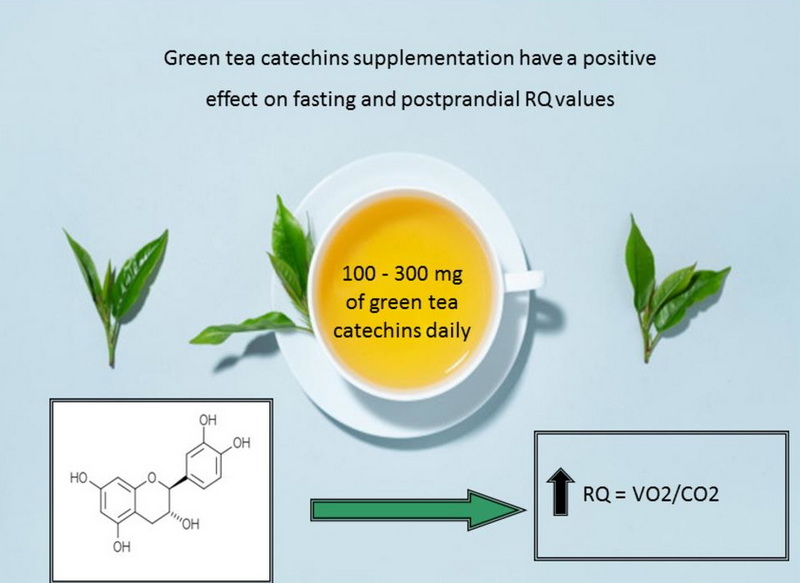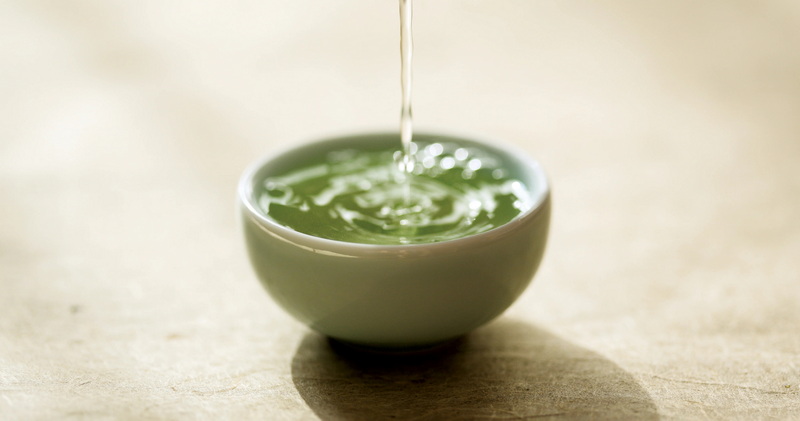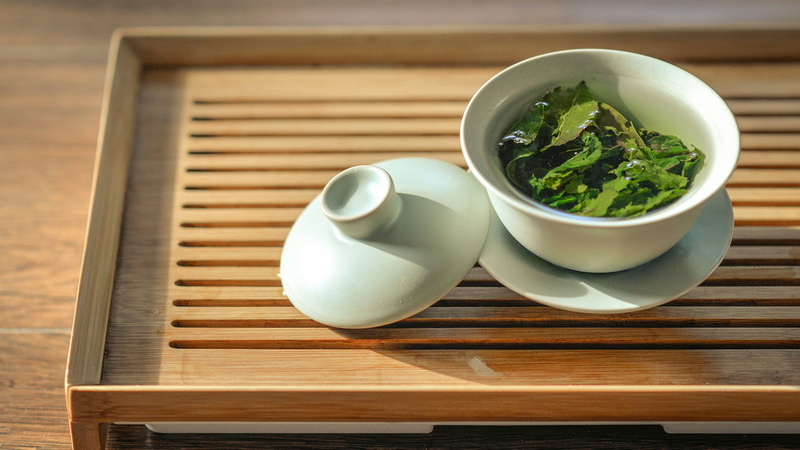Content Menu
● What Are Green Tea and Green Tea Extract?
● Key Differences Between Green Tea and Green Tea Extract
● Health Benefits of Catechins
>> Antioxidant Properties
>> Weight Management
>> Cardiovascular Health
>> Cancer Prevention
>> Brain Health
● How to Incorporate Green Tea Extract into Your Diet
● Safety and Potential Side Effects
● Factors Affecting Catechin Content
● Research and Studies
● Conclusion
● FAQs
>> 1. What are catechins?
>> 2. How much EGCG is in a cup of green tea?
>> 3. Can you get the same benefits from drinking green tea as from taking extracts?
>> 4. Are there any side effects associated with green tea extract?
>> 5. How should I store green tea extract?
● Citations:
Green tea has garnered considerable attention for its potential health benefits, primarily attributed to its rich content of catechins, a type of polyphenol antioxidant. This article delves into the relationship between green tea extract and green tea catechins, exploring their similarities, differences, health implications, and practical applications.

What Are Green Tea and Green Tea Extract?
Green Tea
Green tea is derived from the unoxidized leaves of the Camellia sinensis plant. Unlike black tea, which undergoes a fermentation process, green tea is minimally processed, allowing it to retain a higher concentration of catechins. The primary catechins in green tea include:
- Epicatechin (EC)
- Epicatechin gallate (ECG)
- Epigallocatechin (EGC)
- Epigallocatechin gallate (EGCG)
Among these, Epigallocatechin gallate (EGCG) is the most abundant and extensively studied for its health-promoting properties.
Green Tea Extract
Green tea extract is a concentrated derivative of green tea, produced by extracting its beneficial compounds, particularly catechins. This extract typically contains a significantly higher concentration of catechins than brewed green tea, making it a popular supplement for individuals seeking to maximize the health benefits associated with green tea consumption.
Key Differences Between Green Tea and Green Tea Extract
The following table summarizes the key differences between green tea and green tea extract:
| Feature | Green Tea | Green Tea Extract |
| Form | Brewed beverage | Concentrated powder or liquid |
| Catechin Concentration | 50–100 mg per cup | 375 mg or more per serving |
| Caffeine Content | 30–40 mg per cup | Varies, often higher in extracts |
| Preparation Method | Steeping leaves in hot water | Extraction using solvents or water |
| Bioavailability | Lower due to dilution | Higher due to concentration |
Health Benefits of Catechins
Catechins are renowned for their potent antioxidant properties. Research indicates that they can help mitigate oxidative stress, a critical factor implicated in various chronic diseases such as cancer, cardiovascular diseases, and neurodegenerative disorders. The following sections elaborate on the specific health benefits of catechins.
Antioxidant Properties
EGCG and other catechins have demonstrated superior free radical scavenging capabilities compared to vitamins C and E. This property makes them invaluable in preventing cellular damage induced by oxidative stress. Free radicals, unstable molecules generated during normal metabolism and environmental exposure, can damage DNA, proteins, and lipids, contributing to aging and disease. Catechins neutralize these free radicals, protecting cells from oxidative damage.
Weight Management
Several studies suggest that green tea extract can assist in weight management by enhancing metabolic rate and promoting fat oxidation. A typical study showed that participants taking green tea extract experienced increased fat burning during exercise compared to a placebo group. Catechins, particularly EGCG, are believed to inhibit the enzyme catechol-O-methyltransferase (COMT), which degrades norepinephrine, a neurotransmitter that stimulates thermogenesis (heat production) and fat burning.
Cardiovascular Health
Regular consumption of green tea or its extract may reduce the risk of heart disease by improving cholesterol levels and reducing blood pressure. Catechins have been found to inhibit LDL (low-density lipoprotein) oxidation, a key event in the development of atherosclerosis (plaque buildup in arteries), which can lead to heart attacks and strokes. Additionally, catechins may improve endothelial function, the ability of blood vessels to dilate and contract properly, which is essential for maintaining healthy blood flow.
Cancer Prevention
Research suggests that catechins may possess anticancer properties. Studies have shown that EGCG can inhibit the growth and spread of various cancer cell lines, including those of the breast, prostate, lung, and colon. Catechins may exert their anticancer effects through multiple mechanisms, including:
- Induction of apoptosis (programmed cell death) in cancer cells.
- Inhibition of angiogenesis (the formation of new blood vessels that feed tumors).
- Suppression of metastasis (the spread of cancer cells to other parts of the body).
While promising, more research is needed to confirm the anticancer effects of catechins in humans.
Brain Health
Catechins may offer neuroprotective benefits, potentially reducing the risk of neurodegenerative diseases such as Alzheimer's and Parkinson's disease. Studies have shown that EGCG can protect brain cells from damage caused by oxidative stress and inflammation. Catechins may also enhance cognitive function by improving blood flow to the brain and promoting the growth of new brain cells (neurogenesis).

How to Incorporate Green Tea Extract into Your Diet
1. Supplements: Green tea extract is widely available in capsule or powdered form. These supplements can be taken daily to provide a concentrated dose of catechins. It is essential to follow the recommended dosage guidelines provided by the manufacturer or a healthcare professional.
2. Beverages: Some beverages, such as bottled teas and energy drinks, are fortified with green tea extract to enhance their health benefits. However, it is important to check the label to ensure that the beverage contains a significant amount of catechins and is low in added sugars and artificial ingredients.
3. Cooking: Powdered green tea extract can be used as an ingredient in smoothies, baked goods, and other culinary creations. It adds a subtle green tea flavor and a boost of antioxidants. When using green tea extract in cooking, it is important to use it in moderation, as high concentrations can impart a bitter taste.
Safety and Potential Side Effects
While green tea and green tea extract are generally considered safe, it is important to be aware of potential side effects, especially when consuming high doses. Some potential side effects include:
- Gastrointestinal upset: Nausea, stomach pain, and diarrhea can occur, especially when taking green tea extract on an empty stomach.
- Caffeine-related effects: Green tea and green tea extract contain caffeine, which can cause anxiety, insomnia, and heart palpitations in sensitive individuals.
- Liver toxicity: In rare cases, high doses of green tea extract have been linked to liver damage. It is important to monitor liver function if taking high doses of green tea extract regularly.
- Drug interactions: Green tea and green tea extract can interact with certain medications, such as blood thinners and chemotherapy drugs. It is important to consult with a healthcare professional before taking green tea extract if you are taking any medications.
Factors Affecting Catechin Content
The catechin content of green tea and green tea extract can vary depending on several factors, including:
- Tea variety: Different varieties of Camellia sinensis contain different levels of catechins.
- Growing conditions: Environmental factors such as sunlight, temperature, and rainfall can affect catechin production in tea plants.
- Processing methods: The way green tea is processed can influence its catechin content. Steaming, pan-firing, and other processing methods can affect catechin levels.
- Extraction methods: The methods used to extract catechins from green tea can affect the concentration and purity of the extract.
Research and Studies
Numerous studies have investigated the health benefits of green tea catechins. Some notable findings include:
- A meta-analysis of several studies found that green tea consumption was associated with a reduced risk of cardiovascular disease.
- A study published in the American Journal of Clinical Nutrition found that green tea extract increased fat oxidation during exercise.
- Research published in the journal Cancer Prevention Research suggested that green tea catechins may inhibit the growth of prostate cancer cells.
- A study in the Journal of Alzheimer's Disease found that EGCG protected brain cells from damage caused by oxidative stress.
Conclusion
In conclusion, both green tea and green tea extract offer significant health benefits, primarily due to their catechin content. Green tea provides a moderate amount of catechins along with other beneficial compounds, while green tea extract delivers a concentrated dose of these antioxidants. Choosing between green tea and green tea extract depends on individual preferences and health goals. If you enjoy drinking tea and want to reap the benefits of catechins in a natural form, green tea is an excellent choice. If you are looking for a more concentrated dose of catechins for specific health purposes, green tea extract may be a better option. However, it is important to be mindful of potential side effects and consult with a healthcare professional before taking high doses of green tea extract.

FAQs
1. What are catechins?
Catechins are natural antioxidants found in plants, particularly in green tea. They belong to the flavonoid family and are known for their health benefits, including antioxidant, anti-inflammatory, and anticancer properties.
2. How much EGCG is in a cup of green tea?
A typical cup of green tea contains approximately 100–200 mg of EGCG, the most abundant and studied catechin in green tea. The exact amount can vary depending on the type of green tea and brewing method.
3. Can you get the same benefits from drinking green tea as from taking extracts?
While both provide health benefits, extracts contain higher concentrations of catechins, which may enhance their effects compared to brewed green tea. However, drinking green tea offers other benefits, such as hydration and relaxation.
4. Are there any side effects associated with green tea extract?
High doses of green tea extract can lead to side effects such as nausea, stomach upset, and liver issues. It's essential to follow recommended dosages and consult with a healthcare professional before taking green tea extract, especially if you have any underlying health conditions or are taking medications.
5. How should I store green tea extract?
Store it in a cool, dry place away from light to maintain its potency. Exposure to heat, moisture, and light can degrade the catechins and reduce the effectiveness of the extract.
Citations:
[1] https://tigogreen.de/en/greentea-greentea-extract/
[2] https://patents.google.com/patent/US20160219897A1/en
[3] https://pmc.ncbi.nlm.nih.gov/articles/PMC6100455/
[4] https://www.nature.com/articles/srep19710
[5] https://pmc.ncbi.nlm.nih.gov/articles/PMC6271668/
[6] https://pmc.ncbi.nlm.nih.gov/articles/PMC2748751/
[7] https://www.healthline.com/nutrition/10-benefits-of-green-tea-extract
[8] http://ajpp.in/uploaded/p261.pdf
[9] https://pmc.ncbi.nlm.nih.gov/articles/PMC6076941/
[10] https://pubmed.ncbi.nlm.nih.gov/17357329/






























